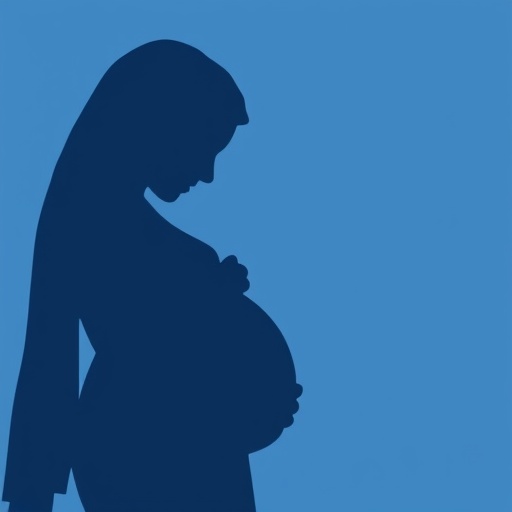In a groundbreaking study that has captured the attention of the global medical community, researchers have delved deep into the ramifications of SARS-CoV-2 infection during pregnancy. This retrospective cohort study not only highlights the prevalence of the virus among pregnant women but also examines its effects on infant outcomes in the critical first year of life. The findings have significant implications for maternal and child health, particularly in understanding how viral infections can impact prenatal development.
The study, led by Wong, Ducharme, and Murphy, utilized comprehensive data gathered from a range of healthcare institutions to assess the impact of COVID-19 on expectant mothers and their newborns. Amid the ongoing pandemic, the focus on understanding these relationships has never been more crucial as healthcare providers aim to better support pregnant individuals during such uncertain times. The analysis aimed to uncover not just the rates of infection, but also potential adverse effects stemming from maternal COVID-19 diagnoses.
Central to the research was the elucidation of how SARS-CoV-2 might influence both maternal health and fetal development. The study’s findings suggest that infections during pregnancy could lead to a range of complications, including premature birth and low birth weight. Understanding these associations is vital for informing future healthcare practices, and it raises critical questions about the measures necessary to safeguard these vulnerable populations.
Detailed assessments of patient history within the cohort lent credence to the study’s conclusions. Researchers divided the participants into those who had contracted SARS-CoV-2 during pregnancy and those who had not, tracking various outcomes including neonatal health metrics and developmental milestones. This longitudinal approach provided invaluable insights into any differentiating factors that might emerge as a result of maternal infection.
The implications of the study extend beyond immediate health impacts. They unleash a flurry of questions regarding long-term outcomes for infants whose mothers were infected with SARS-CoV-2. Are these children at greater risk for developmental delays? Will they require more intensive medical monitoring in their early years? As the research encapsulates these uncertainties, it also makes a call for expanded studies that capture longer-term data on this population.
Additionally, researchers explored the protective mechanisms that may be at play during pregnancy. The immune adaptations that occur in response to viral infections — and how these might differ in pregnant individuals — are complex and still not fully understood. The research prompts further inquiry into whether maternal immunization strategies could mitigate the risks outlined in their findings.
The study doesn’t just serve to outline risks; it emphasizes the need for robust prenatal care that includes ongoing monitoring for women who contract SARS-CoV-2. Healthcare providers are encouraged to consider these findings as they develop treatment protocols and preventative measures tailored to pregnant patients navigating the realities of COVID-19. Such approaches could potentially alter the course of maternal and infant health following infection.
Critically, what this research underlines is the importance of data-driven policymaking in public health initiatives aimed at pregnant populations. As the community grapples with ongoing COVID-19 waves, this research provides an essential evidence base that could influence vaccination policies, healthcare guidelines, and maternal support systems moving forward.
While the study is comprehensive, it also has boundaries. The researchers acknowledge limitations regarding sample diversity and the need for robust data collection across different demographics. Expanding the cohort to involve a broader population of pregnant women could yield more universally applicable results. This limitation highlights the need for continued studies across diverse settings to better illuminate the impacts of SARS-CoV-2.
As the study paves the way for future research, it invites dialog among multidisciplinary teams of professionals in medicine, epidemiology, and public health. Collaboration across these fields will be fundamental for developing interventions that protect pregnant individuals and their offspring during similar global health crises in the future.
Overall, the work of Wong, Ducharme, and Murphy provides a significant contribution to our understanding of SARS-CoV-2 in pregnancy and its potential effects on infant outcomes. It lays a foundation for future investigations while simultaneously urging the need for immediate action in health policy and clinical practice. The results are a clarion call for the medical community to remain vigilant and responsive as ongoing challenges emerge during and after the pandemic.
In conclusion, the findings of this retrospective cohort study shed light on the intricate connections between viral infections during pregnancy and subsequent infant health outcomes. As researchers continue to uncover the full scale of impacts stemming from COVID-19, opportunities for enhancing maternal and child health will surely arise. The implications, both immediate and far-reaching, underscore the necessity for ongoing focus on this critical area of healthcare.
By integrating findings from such research into clinical practice, healthcare systems worldwide can work toward improved strategies that prioritize the well-being of pregnant women and their newborns in the face of emergent viral threats.
Subject of Research: SARS-CoV-2 infection in pregnancy and its effects on infant outcomes in the first year of life.
Article Title: SARS-CoV-2 infection in pregnancy and infant outcomes in the first year of life: a retrospective cohort study.
Article References:
Wong, K., Ducharme, R., Murphy, M.S.Q. et al. SARS-CoV-2 infection in pregnancy and infant outcomes in the first year of life: a retrospective cohort study.
BMC Pediatr 25, 842 (2025). https://doi.org/10.1186/s12887-025-06128-z
Image Credits: AI Generated
DOI:
Keywords: SARS-CoV-2, pregnancy, infant outcomes, retrospective cohort study, maternal health.




